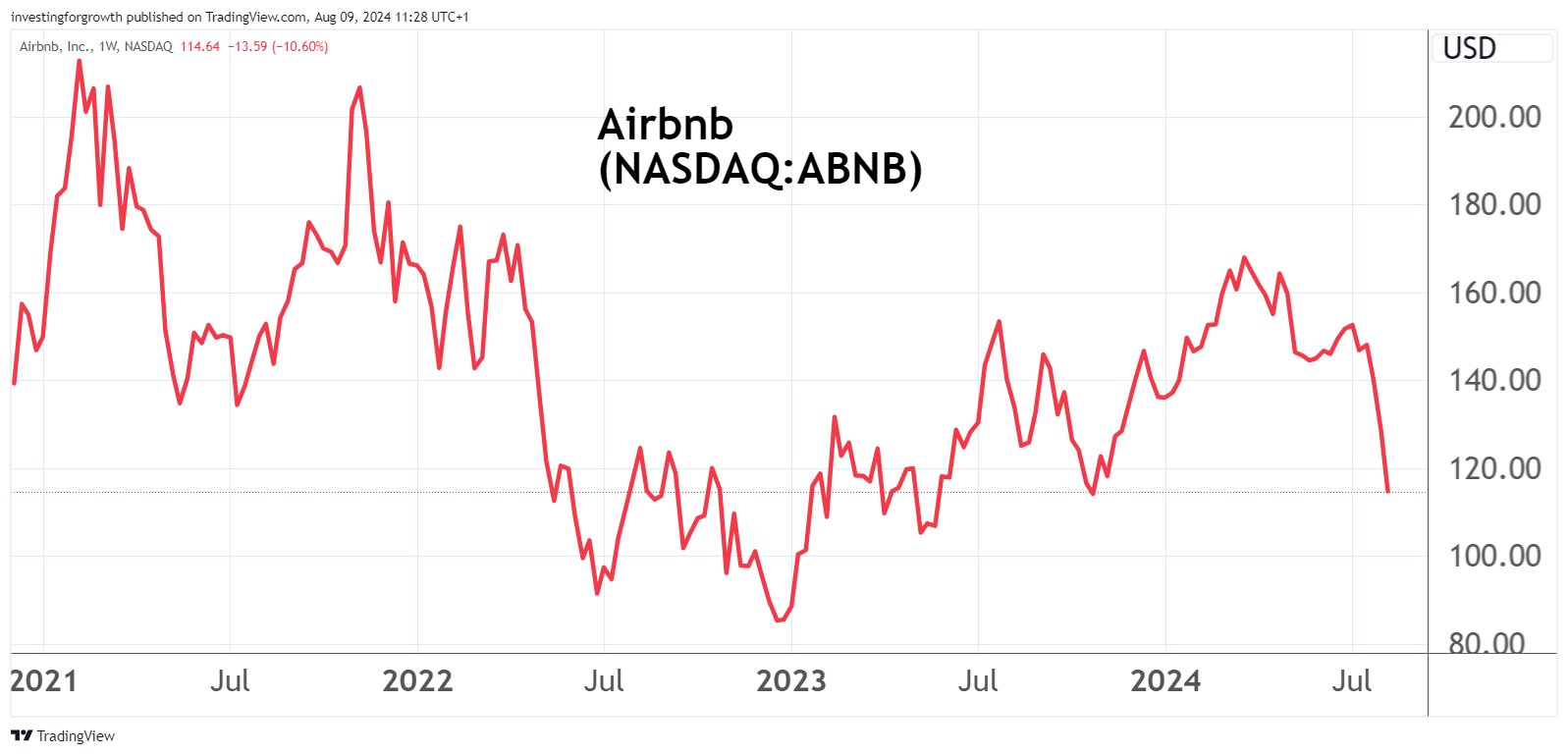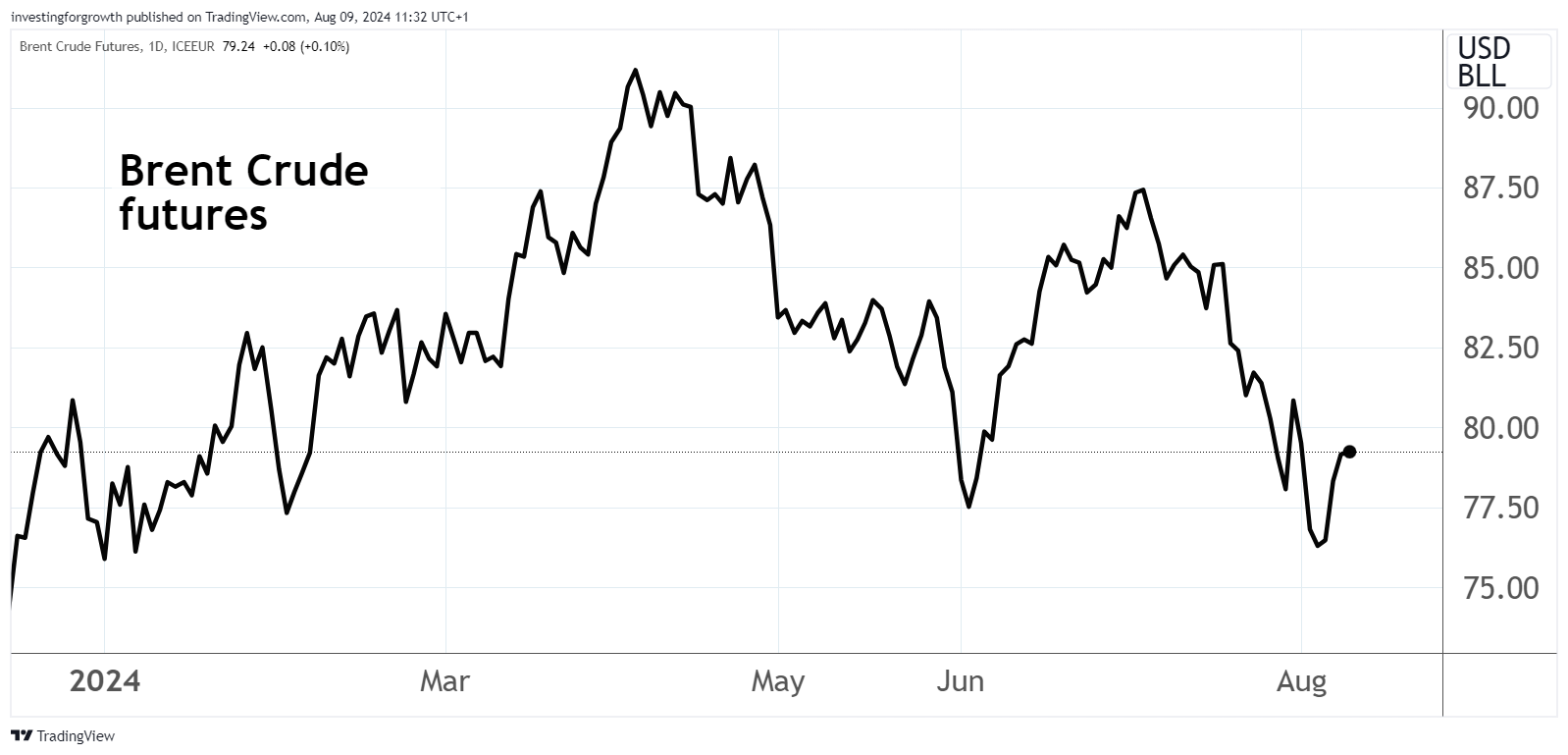Stockwatch: has a ‘Minsky moment’ in stock markets been averted?
With so much currently affecting global financial markets and other events bubbling away in the background, analyst Edmond Jackson gives his opinion on where things are heading.
9th August 2024 12:04
by Edmond Jackson from interactive investor

This week certainly has offered a summer cocktail of uncertainty. And it begs the question whether investors should swallow risk or take cover in the shade.
It started in a sense of another Black Monday, with Japanese stocks ending down 12%, their biggest one-day fall since the notorious Monday 19 October 1987 when the US market plunged 23%. The story was a sudden unwinding of the “carry trade” where institutions have borrowed in yen – Japan having been the last vestige of “free money” – to invest, for example, in US assets, from Treasury bonds yielding 5% to technology exotica multiplying in value.
- Invest with ii: Top UK Shares | Share Tips & Ideas | What is a Managed ISA?
The ominous significance is of a “Minsky moment”, a phrase originally describing the 1997 Asian debt crisis but relating to Hyman Minsky, a 20th-century Keynesian economist who regarded capitalism as inherently unstable, with financial markets prone to boom/bust swings. A Minsky moment – best illustrated by the 2008 crisis – implies a sudden collapse of asset prices after a long period of speculation by money managers.
It is uncler whether leveraged hedge funds or Japanese domestic institutions are most to blame - Japan is the world’s largest creditor nation with over $10 trillion (£7.8 trillion) of assets – but diverging monetary policies in the US and Japan meant the yen has been weak (reducing value of debt at ultra-low interest). Yet the Bank of Japan just lately joining other central banks in “normalising” rates, with a second rise, has meant a sudden 12% jump in the yen’s value versus the dollar. That triggered liquidation attempts in equities to close out carry trades.
Unlike 1987 and 2008, however, stocks rallied thereafter. Yesterday, US prices rose over 2% and Asia-Pacific markets have tracked them higher, helping European stocks post gains today.
Favouring a Minsky-type interpretation of all this, various crowded trades of “market leaders” have broken down lately. Japanese stocks, and semiconductor stocks generally, have fallen around 20% - the US “Magnificent Seven” technology stocks down over 10%, and copper (a classic cyclical commodity) down nearly 20%.
When key leaders falter like this it suggests a stale, flagging bull market and, if driven by unsustainable speculative money (the yen-dollar carry trade), then a crash.
But it’s yet to happen and does not feel to me like the 1987 and 2008 crises. However, it’s unclear whether so much money has now been created (the Covid years, for example) that it’s sitting on the sidelines desperate to seize any material market drop.
Conflicting signals from the US labour market
US jobs data appears to be the key underlying influence currently, beyond some mixed updates from companies about the second quarter of 2024.
A week ago today, stocks panicked at the lower-than-expected number of new US jobs added in July, while unemployment rose the most in nearly three years. But yesterday, weaker-than-forecast unemployment claims for July meant stocks soared. The only certainty is that this shows what little one should assume about economic data – even when near-identical, and within a week.
It did concern me, however, to see an overall declining trend at Airbnb Inc Ordinary Shares - Class A (NASDAQ:ABNB) when it reported second-quarter/interim results last Wednesday. The stock saw its biggest ever drop, down 15%, despite no nominal decline in bookings. Their growthrate has simply declined from 17% like-for-like in the third quarter of 2023 to 12% in the first quarter of 2024 and 11% in Q2. Well, you would expect some moderation in the post-Covid boom in leisure type spending by now.
Yet, while latest revenue beat consensus estimates, guidance is downgraded for the third quarter and profit has come in 15% below expectations.
I still think the market’s reaction is excessive given this stock trades on around 15x trailing earnings, which is no “growth” rating for a business with cyclical elements, the time truly to worry. The drop essentially takes Airbnb back to an upwards trend-line from end-2022 after 2021 exceptional highs:

Source: TradingView. Past performance is not a guide to future performance.
What is concerning is that nearly half of group revenue derives from US domestic travel when consumer spending is estimated to constitute around three-quarters of US gross domestic product. Airbnb also likely represents an element of business travel. Stock rating aside, it affirms weakness creeping into US data, which it should after a period of higher interest rates were intended to dampen demand and inflation.
Wider market sentiment can easily tilt bullishly again, as indicators like this imply the Federal Reserve can start to reduce interest rates before its formal 2% inflation target materialises.
The Middle East tinderbox is the biggest risk
Compared with last spring, when Israel provoked Iran and its proxies into a measured firing of missiles and drones – sending a firm message without causing retaliation – prospects looks far more serious this time.
Iran and its key Lebanese proxy Hezbollah have vowed “severe” retaliation in response to the 30 July assassination of a key Hezbollah leader in Beirut, followed by another the next day of a leader of Hamas in Tehran.
This made it particularly humiliating for Iran, while causing dismay among Israel’s Western allies. It looked far more like provocation than containment, or the Middle East simply getting out of control.
Payback is awaited. Many countries, including the UK, have urged their nationals in Lebanon to leave as soon as possible. Reports cite Israel preparing intensively to deal with imminent threats from Iran and Hezbollah, which includes possible pre-emptive action based on intelligence of an imminent strike. What if such intelligence is flawed?
It can seem curious that oil prices have not jumped in fear of disrupted supply, but in a tempered global context for demand (under higher interest rates) we have seen two such rallies quashed this year, in the spring and in July. The oil market has wised up, and prefers to see what real disruption might occur, and current oil prices do not pose recession risk.

Source: TradingView. Past performance is not a guide to future performance.
Do not forget Russia/Ukraine
This war has faded in Western attention given the UK and US elections, big sporting events and riots here. But there has been a novel twist this week by way of Ukrainian troops entering the Russian Kursk region, which it is speculated is designed to divert Russian military resources from higher pressure points.
Given the extent of US/European military aid to Ukraine, the sense is that this is not happening without Western approval, but which logic is guaranteed to reinvigorate the Kremlin’s narrative to its people that Russia is not the aggressor and is, instead, subject to foreign threat. Some kind of angry kickback could result, and Putin has before threatened the use of tactical nuclear weapons.
Market timing is futile in these circumstances
Yes, there are downside risks if the Middle East deteriorates further, for example the breakdown of takeover talks for international consulting engineerJohn Wood Group (LSE:WG.), citing “geopolitical risk”, exemplifies how business can retrench.
But I think the US recession fears are a misnomer given the likely effect of prodding the Federal Reserve into interest rate cuts. The economic indicators are mixed, but the way US stocks rallied after the failed assassination attempt on Donald Trump – anticipating this would boost his re-election chances – appeared to confirm a bull market.
Edmond Jackson is a freelance contributor and not a direct employee of interactive investor.
These articles are provided for information purposes only. Occasionally, an opinion about whether to buy or sell a specific investment may be provided by third parties. The content is not intended to be a personal recommendation to buy or sell any financial instrument or product, or to adopt any investment strategy as it is not provided based on an assessment of your investing knowledge and experience, your financial situation or your investment objectives. The value of your investments, and the income derived from them, may go down as well as up. You may not get back all the money that you invest. The investments referred to in this article may not be suitable for all investors, and if in doubt, an investor should seek advice from a qualified investment adviser.
Full performance can be found on the company or index summary page on the interactive investor website. Simply click on the company's or index name highlighted in the article.
Disclosure
We use a combination of fundamental and technical analysis in forming our view as to the valuation and prospects of an investment. Where relevant we have set out those particular matters we think are important in the above article, but further detail can be found here.
Please note that our article on this investment should not be considered to be a regular publication.
Details of all recommendations issued by ii during the previous 12-month period can be found here.
ii adheres to a strict code of conduct. Contributors may hold shares or have other interests in companies included in these portfolios, which could create a conflict of interests. Contributors intending to write about any financial instruments in which they have an interest are required to disclose such interest to ii and in the article itself. ii will at all times consider whether such interest impairs the objectivity of the recommendation.
In addition, individuals involved in the production of investment articles are subject to a personal account dealing restriction, which prevents them from placing a transaction in the specified instrument(s) for a period before and for five working days after such publication. This is to avoid personal interests conflicting with the interests of the recipients of those investment articles.